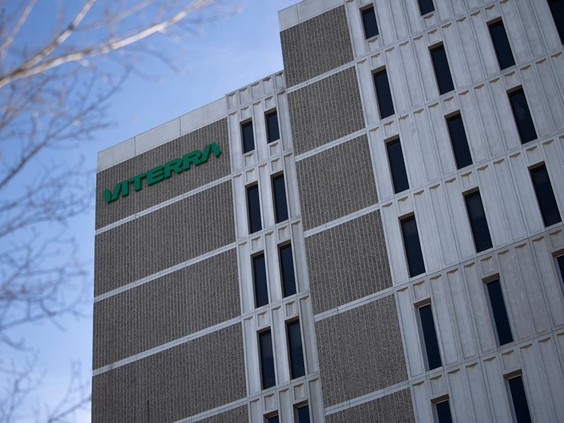
Michael Joel-Hansen
Saskatoon StarPhoenix
A new Competition Bureau report highlights concerns shared by the Agricultural Producers Association of Saskatchewan over an $8.2-billion acquisition of Viterra by Bunge Limited, the president of APAS says.
In the Competition Bureau report, the bureau says the acquisition would “substantially” reduce competition in grain and canola oil markets. The bureau says the deal is likely to hurt competition in markets for grain purchasing in Western Canada as well as for the sale of canola oil in Eastern Canada.
APAS president Ian Boxall said the report from the Competition Bureau highlights many of the issues the association has had from the start.
“This merger is not in the best interest of producers, and in actual fact expanding on that, it probably isn’t in the best interests of people from Saskatchewan,” Boxall said.
If the acquisition is allowed to go through, Saskatchewan farmers would be left with fewer options for selling their crops, he added.
“Within 30 minutes of my farm, four outfits would be under one house.”
Bunge Limited owns crop processing facilities in Saskatchewan and also has a 25 per cent stake in G3, which also has facilities in the province. The report noted Bunge could influence the behaviour of G3 Global Holdings, a major competitor to Viterra. Bunge is a minority shareholder of G3, which operates grain elevators in many of the same regions as Viterra.
U.S.-based Bunge announced a deal last summer to buy Viterra for US$8.2 billion in cash and shares.
Viterra, formerly the iconic Saskatchewan Wheat Pool, is a grain-handling business with more than 80 facilities across the country.
The merger is part of an ongoing wave of consolidation in the agriculture sector in recent years. Among notable mergers have been German company Bayer’s 2018 US$66-billion blockbuster deal to acquire Monsanto, as well as the 2018 merger between Agrium Inc. and PotashCorp of Saskatchewan, which created Nutrien Inc., the largest potash producer in the world.
Boxall said he was not prepared to call for blocking the proposed acquisition, though he suggested if the deal was allowed to go through, some divestment may have to be ordered to ensure competition.
Boxall said farmers in many cases have fewer choices when buying implements and fertilizer or looking for auction services.
“There’s so many aspects of it being merged that just gives us less competition, less option.”
Along with the potential negative impact on farmers, Boxall said there are unanswered questions about what Bunge’s acquisition would mean for people working at the company’s office in Regina.
“The Government of Saskatchewan and the Government of Canada needs to make sure that the due diligence is done to ensure that this is in the best interest of producers and people in Saskatchewan,” he added.
Saskatchewan Agriculture Minister David Marit was not made available for an interview. In a prepared statement, the ministry said it has consulted with stakeholders about the proposed merger.
“We heard their concerns about the impact on competition in the country and at ports, small crops and oilseed crushing,” the statement said.
“The Government of Saskatchewan made a submission to Transport Canada and the Competition Bureau raising stakeholder concerns and requesting that both Transport Canada and the Competition Bureau undertake an in-depth analysis. We will continue to monitor the situation and engage with our industry.”
Transport Canada has until June 2 to complete a public interest assessment and provide it to the minister. — With Canadian Press files

